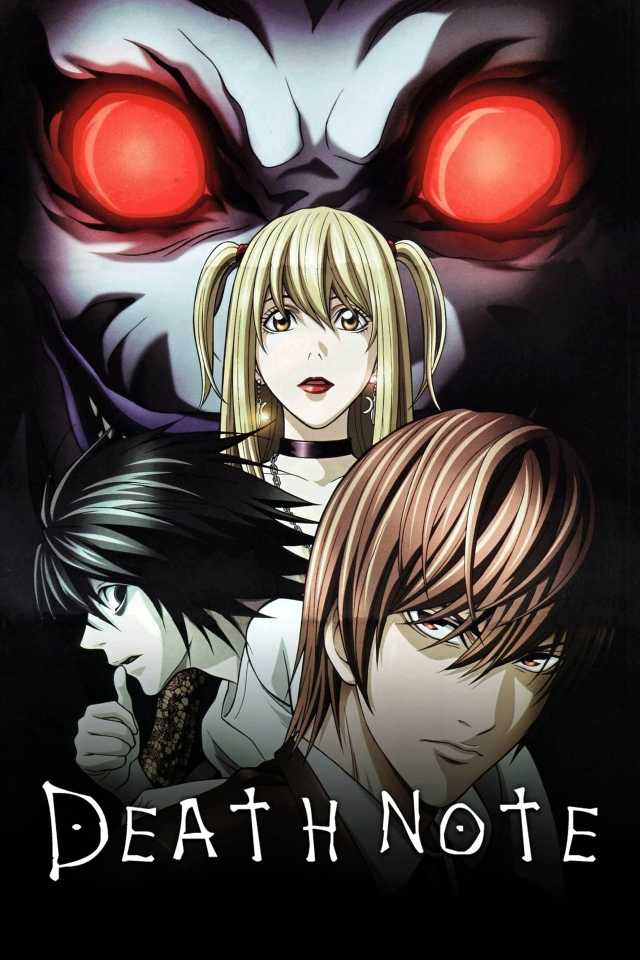It's Time To Admit It, The 2000s' Two Most Controversial Anime Heroes Are Nothing Alike No Matter What Fans Say
Lelouch vi Britannia from Code Geass: Lelouch of the Rebellion and Light Yagami from Death Note have sparked debate over the years about their roles in their stories.They both stand out as some of the most compelling figures in anime for their intelligence, charisma, and willingness to change the status quo. Both Lelouch and Light have left a lasting impact on audiences, often leading to comparisons that attempt to define which of the two is superior in terms of strategy, morality, or effectiveness.
However, the discussion surrounding them is often oversimplified and fails to acknowledge the complexities that make both characters unique. Both Code Geass and Death Note pushed the limits of controversial storytelling, exploring themes of power, justice, and rebellion in ways that resonated with a global audience. Fans and critics alike often analyze and compare Light and Lelouch. While they share some parallels, the two are fundamentally different.
Light and Lelouch Have Very Different Goals and Approaches to Power
Light Wanted To Play God, Whereas Lelouch Wanted To Dismantle an Emperor Who Played God
Light Yagami’s pursuit of power stems from his desire to impose a rigid sense of justice in the world. After getting his hands on the Death Note, Light’s perception slowly began to change as he became the judge, jury, and executioner and systematically disposed of those he deemed unworthy. His goal was essentially absolute dominance as a mysterious force who dictated morality without opposition. Light saw his power as a means of control and maintained order in society through fear. His vision was to create a world that conforms to his will and ideals of right and wrong.
On the other hand, Lelouch vi Britannia wanted to dismantle an oppressive empire and create a world that was free from its tyranny. His rebellion against Britannia was driven by a need to overthrow systemic injustice rather than dictate right and wrong based upon his own beliefs. To Lelouch, power was a means to an end rather than the end itself. Unlike Light, Lelouch acknowledged the cost of wielding such power and often questioned the morality of his actions. His leadership is built on inspiring others to rise against oppression rather than instilling fear to maintain control.
Emotional Bonds Drive Lelouch While Light Remains Detached
Light Is More Distant Than Lelouch and Separates Himself From Those Around Him
Lelouch’s emotional bonds with his family and friends make him a uniquely conflicted leader as he struggles between his personal attachments and his mission. His love for Nunally, in particular, serves as his greatest motivation throughout the series, but his connections to others like Suzaku, Shirley, and C.C. continuously test his resolve. These relationships create moments of hesitation and guilt that humanize him through the burdens and consequences of his actions. His emotions don’t weaken him, but they add to the tragedy of his journey and force him to sacrifice his own happiness in exchange for those he loves.

After 7 Years, We Admit It: Netflix’s Death Note Is Not as Bad as We Originally Thought It Was
Netflix’s Death Note, despite its controversies, deserves another look for its reinterpretation of the original themes with a Western framework.
Light, however, actively distances himself from emotional attachments and sees others as distractions or tools to be exploited. He manipulates Misa’s devotion to serving his goals and continuously deceives those around him without remorse. His detachment allows him to make ruthless decisions without hesitation and demonstrates how far his beliefs have isolated him from the rest of humanity. Unlike Lelouch, Light rarely second-guesses himself and transforms into a much colder individual whose sole purpose is the pursuit of his goals.
Comparing Light and Lelouch Oversimplifies Both Characters
Light and Lelouch Are Far More Than Their Ideals and Intellect
Lelouch and Light share similarities on a surface level, but reducing them to the same character archetype ignores the depth of their character arcs. Both wield immense power and deceive those around them, but their motivations, struggles, and ultimate fates are incredibly different. Whereas Lelouch constantly questions his actions and their consequences, Light acts with a sense of arrogance and superiority. Lelouch’s internal conflict is a key aspect of his character, while Light is consumed with the belief that his actions are righteous.
Although they both led double lives in pursuit of their vision of a new world, their approaches couldn’t have been more different.
Another key difference between the two is how they develop over the course of their stories. Lelouch’s journey is one of transformation as he goes from a vengeful, exiled prince into a tragic hero who ensures peace after a long battle. His character arc is centered on growth, self-reflection, and redemption. Light, however, follows a path of corruption as he descends further into a tyrant who loses sight of his original intentions. Their paths move in opposite directions, and their stories function as fundamentally different explorations of power and morality.
The way both series end further exemplifies their differences. Lelouch willingly embraces his death as a means to achieve lasting change, demonstrating an awareness of his flaws and the necessity for his sacrifice. Light, on the other hand, desperately clings to power until his final moments and is unwilling to accept his downfall. Light’s arrogance and detachment leave him completely alone when he meets his end in Death Note. Although they both led double lives in pursuit of their vision of a new world, their approaches couldn’t have been more different.
Lelouch’s Decisions Are Defined by Bonds Light Can’t Comprehend
Light Became Blinded by Power in the Pursuit of His Goals
Lelouch’s relationships are the foundation of his decisions, shaping his motivations and the sacrifices he makes on his journey. His love for Nunnally is the driving force behind his entire rebellion, and his awareness of how his actions affect others leads him to seek atonement through his Zero Requiem plan. Lelouch didn’t use his power in seeking glory or dominion, but rather for the people he cherishes most. Even when he manipulated others, there was often an underlying emotional weight beneath his actions, giving his choices more depth and making him a leader who understands the cost of his ambition.
Light views people as disposable assets and uses them as pawns to further his agenda. His lack of meaningful relationships leaves him devoid of empathy and prevents him from considering perspectives beyond his own. This detachment enables him to be ruthless but ultimately leads to his inevitable downfall, as he isolates himself from allies and finds himself outmaneuvered by those who can see through his deceptions. Unlike Lelouch, who achieves redemption through sacrifice, Light’s failure to form genuine connections guarantees that his legacy will ultimately result in failure and isolation.

Code Geass Just Made a Quiet Comeback With Surprise New Series
Code Geass just came out with an all-new manga for fans of the beloved cult classic to hop into, with some returning and new faces.
While both series are often compared to each other due to themes of power, morality, and rebellion, their protagonists are fundamentally different. One character became an emotional and self-sacrificing leader, while the other grew into a detached individual with a god complex in pursuit of his goals. The contrast between them is precisely what makes each of their stories compelling in unique and vastly different ways. To truly appreciate Lelouch vi Brittania from Code Geass and Light Yagami from Death Note, it's essential to recognize that their differences outweigh their similarities.

Code Geass: Lelouch of the Rebellion
- Release Date
- 2006 - 2008
- Directors
- Gorō Taniguchi
- Writers
- Ichirō Ōkouchi
- Franchise(s)
- Code Geass
Cast
See All Johnny Yong Bosch
Johnny Yong Bosch Yuri Lowenthal
Yuri Lowenthal
Code Geass: Lelouch of the Rebellion is a Japanese anime series set in an alternate future where the Holy Britannian Empire has conquered Japan. The series follows Lelouch vi Britannia, an exiled prince who gains a mysterious power called Geass and uses it to lead a rebellion against the imperial power. Lelouch balances his dual life as a student and a masked revolutionary leader, driven by a desire to avenge his mother's death and create a better world.

Your comment has not been saved
Death Note follows high school student Light Yagami, who discovers a mysterious notebook granting the power to kill anyone by writing their name in it. As Light uses the notebook to enact his own sense of justice, he attracts the attention of the enigmatic detective known as L, leading to a complex game of cat and mouse. This Japanese anime series explores themes of morality, power, and the consequences of absolute authority.











Your comment has not been saved